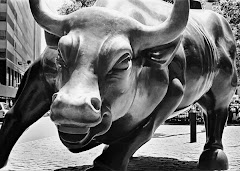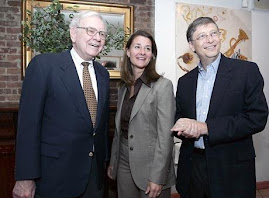Source Of Passive Income – Publishing BooksI trust that most of you would be familiar with Robert Kiyosaki’s “Rich Dad Poor Dad”. It is really a good book imparting knowledge on financial freedom. In fact, I first came to know and understand the term “passive income” from his book. From his cashflow quadrant, anything that give rise to constant stream of income without much time on it is a passive income. Writing and selling books is also a source of passive income. I had many friends who read a lot, frequently, but sometime indiscriminately helping the author to be rich. Should we be selective in buying books? The answer is definitely yes unless you have nothing better to do. To read a book, you must first spend money on it, and then spend time on it and finally a storage space. And every time when you pay for a book, you are helping the author to collect passive income; you are helping him to be rich!
No offence to those who write and sell books. But my point is that you shouldn’t buy a book for sake of buying it. For example, if you already know about investment, then no point keep buying more since they are about the same (change the soup but not the ingredients). Am I here to discourage you from reading? Definitely not! I am here to advise you to be selective and don’t help others to gain passive income unless that person really deserve the reward. Let me share with you how two books change my life. It’s a big joke of my life. While the author is certainly rich, I am still that poor. But I promise there is good lesson to earn.
The First Encounter – The CheeseIn 2002, I completed my ACCA (accounting) study. I was then a

n army regular earning very decent and stable income. I used to own a car then. As with most of my comrades, our promotion was quite smooth and prompt. It was a secured job (but not anymore today). However, like many others, we were not contented then. Many took up higher study and left after graduation – for green pastures. I too hope to be a professional accountant earning high income. Then someone recommended me to read a book titled “Who Moved My Cheese”. I can’t remember exactly the content now but it is about accepting change. It talks about rat in a maze enjoying its cheese but what if it finish that cheese? So one should move out to look for other cheese outside the maze, or something like that. Anyway, the moral of the story is to accept change and to take the challenge.
Back then; the SAF adopted a new system to retain qualified servicemen. They call it the Premium Plan. Only those who met certain criteria will be offered a lifetime career. In early 2002, I was offered and I accepted it. But after reading the book, and with encouragement from a few friends and colleagues, together with my newly acquired qualification, I tendered my resignation. I decided to find my cheese outside.
The StruggleI left the service in 2003 in the midst of recession. The job market was tight and I was unable to join any accounting firm and became jobless for 9 months. Finally I join another company doing operational work. My accounting qualification was wasted. But I didn’t give up. I continued to search for my chance, took up higher study (again), tried to go into business with a friend but there was no result. While most of my ACCA coursemates were holding very senior appointments earning exceptionally high income, I am not even an Executive. I remember one coursemate got the post of Dy GM for Natsteel’s China business. And my operational job just ensures that my certificate will be useless and I’ll never climb.
When I was disheartened, my ex-manager gave me a book and insisted that I must read it. I didn’t read it immediately as I was not that keen initially. But when I read it, my mind opens up again. This book is Adman Khoo’s “Master Your Mind, Design Your Destiny”. The whole book was about having positive mindset to help you to overcome problems and to excel. I changed my mindset and it did make a different. That is a very good book.
The PresentLast week, my current boss lends me a book to read. The book titled “The P
.gif)
resent”. Guess what? The same author who wrote “Who Moved My Cheese” wrote the book. Bascially, the book is about appreciating present and find ways to work it out no matter how discouraging it is. Let me quote a para in page 42 of the book:
“Focus on what is happening at the moment. Appreciate what is right about the situation, and build on it.”Did you find something odd here? Five years ago, the author's book encouraged me to find my cheese outside - to change. But now, the book wants to me appreciate presence; appreciate what I have now!!! I was shocked and insulted. If not because of my boss, I would have torn the book into pieces. While the author continues to earn passive income, and I am one of the donors, his book got me into trouble (indirectly)!!!
What Have I learned?We receive tonnes of information and advises from many sources – friends, colleagues, books, internet, pastors etc. But to make right decision, in my opinion, the very first thing that a person need is
MATURITY and
PATIENCE. I mean we just can’t always simply adopt new concepts other people shared indiscriminately. The intention may be good but may not be suitable for every reader. There is never right or wrong answer in each of these concepts. I am sure every book has its good purpose and will definitely benefit some readers but not all.
Do I blame the book? No, I made the decision and I shall bear the consequence. Certainly I am not that mature at that point in time (five years ago) and was rather impatient. Do I regret moving out (of SAF) to search for new cheese? Yes, to some extend but no point looking back. And what’s the lesson I learned so far?
1) Be selective in buying self-enrichment books. Do not help others to earn a passive income unnecessarily unless it justified. If you invest (pay) in a book, you must expect a POSITIVE RETURN, tangibly or intangibly.
2) When acquired new knowledge/teaching/concept, stay calm and think it over and over again. Consult some friends or seniors. Be patient.
3) Accept the fact that even if you apply a concept closely, it doesn’t mean that you will definitely get the same result. For some yes but not all. E.g. the author shares with you his secret to become millionaire. Do not expect that you will also become a millionaire if you apply exactly. Get real!
To be continue......if there is any.......







.gif)





